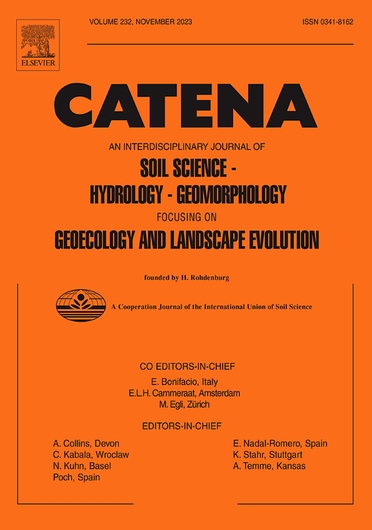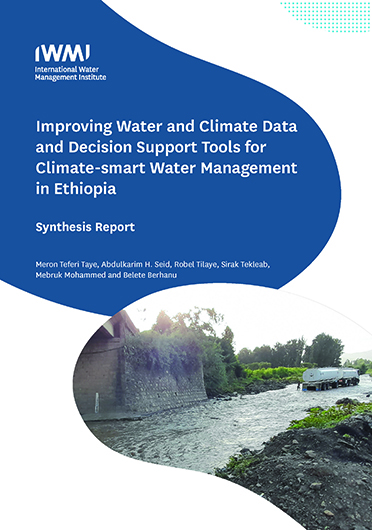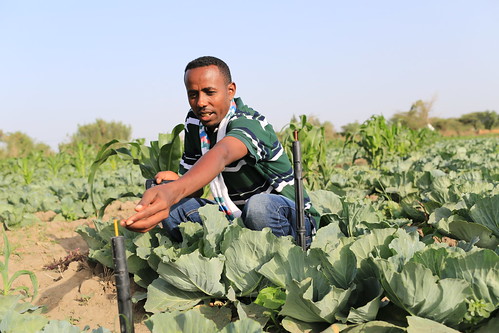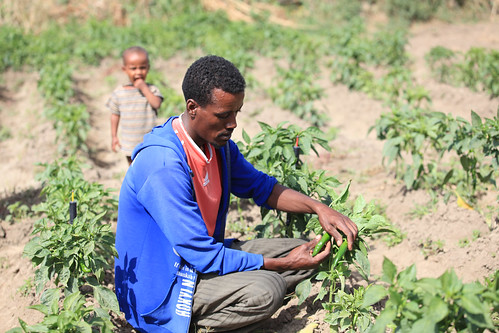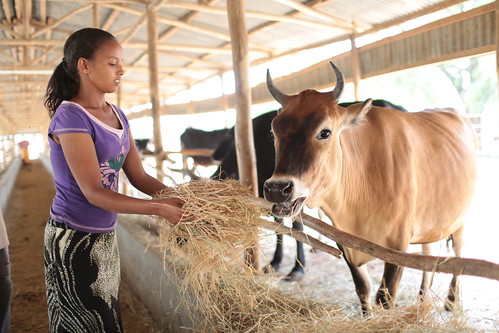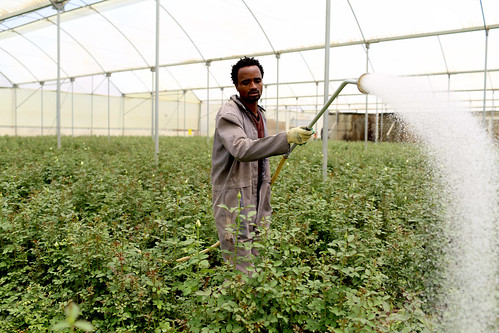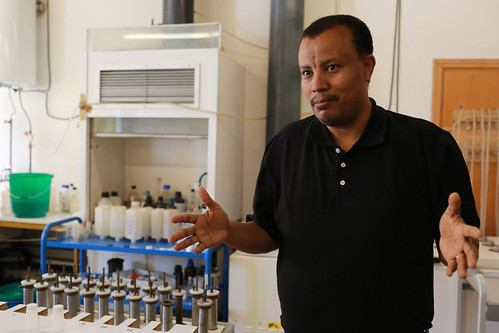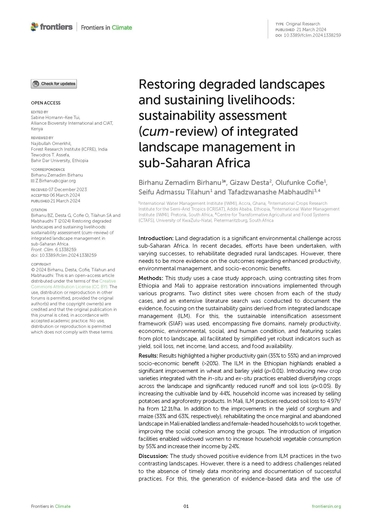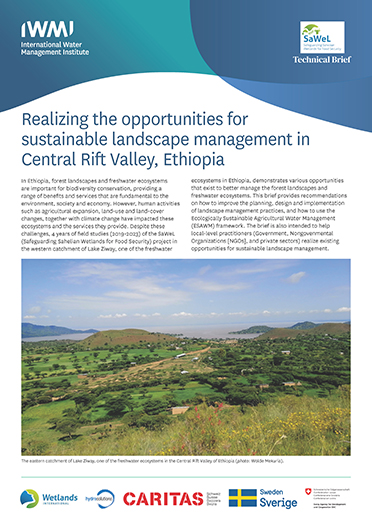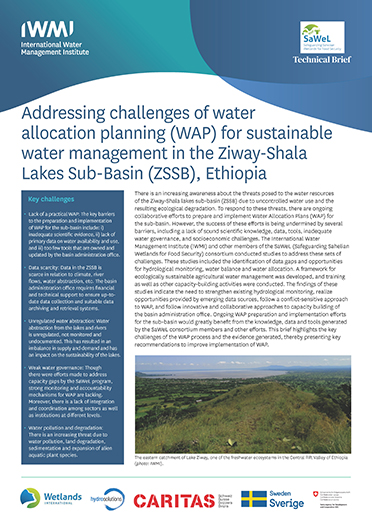IWMI in East Africa

Water is crucial for food security, human well-being and health, and biodiversity. With population increases and economic growth, water is also essential for energy generation, manufacturing and urban development. Economically, Eastern Africa is the fastest growing region on the continent. Most of the growth is in cities, driven by rural migration, especially of young people. Economic expansion leads the continent at close to 7% per year. However, the benefits of economic development are not equally distributed, with women, young people and marginalized groups receiving a disproportionately low share. They are also more vulnerable to climate shocks, due to social exclusion and lack of support, particularly in the agriculture sector, as well as being dependent on natural resources for their livelihoods. Rapid economic growth has also led to unsustainable use of land and water resources, and uncontrolled and widespread industrial pollution.
Eastern Africa experiences regular lengthy periods of drought. The region is plagued by floods: five of the seven most flood‐prone countries on the continent are in Eastern Africa. The frequency and duration of droughts and floods will only increase with climate change. Rapid urbanization and a strong push to create employment in the manufacturing and industrial sectors have created competition over the relative distribution of water for domestic, industrial and agricultural purposes. There are also issues around whether distribution should favor water for smallholders or large-scale farmers, often export-oriented agriculture. Policies on these matters are often vague. The mandate for managing water is spread across different ministries, and the organizations tasked with water management are understaffed and underfunded.
IWMI is working towards bringing irrigation technology to smallholder farmers in Eastern Africa. In Ethiopia and Tanzania, IWMI scientists are testing water-lifting tools and practices in farmers’ fields, while addressing constraints to adoption and scaling, such as gender issues, and access to credit and the technology supply chain. Another project works with communities in Ethiopia to build small-scale irrigation systems, which are owned and managed by farmers, underpinned by sustainable irrigation water management, and agricultural support services and institutions. Yet another project evaluates irrigation performance in the Nile River Basin to support joint action by countries to enhance the efficiency and productivity of irrigated agriculture. We promote sustainable irrigation development while providing advice on policy options and incentives for low-cost, inclusive solutions. We also carry out capacity development to support the pathway from research to impact.
Land degradation is a serious problem in Eastern African countries. This disrupts agricultural production and puts significant pressure on water resources, as farmers try to counter decreasing land productivity with the increased use of irrigation water, fertilizers and pesticides.
IWMI develops strategies for better land and water use. In Ethiopia, we are designing measures to combat land degradation and enhance local benefits, particularly for marginalized groups. These measures include the use of ‘exclosures’ – degraded areas where woodcutting, grazing and agricultural activities are prohibited to promote natural regeneration. IWMI trains landless youth and women to manage these exclosures and conduct income-generating activities, such as beekeeping or livestock fattening. In the Omo-Turkana Basin, we are gathering data on the status of, and drivers of change in, the basin’s ecosystems, and suggest practical solutions to ensure the continued delivery of ecosystem services to communities whose livelihoods are threatened by the degradation of these fragile ecosystems.
Water has an emotional and spiritual dimension in many countries. Through stakeholder dialogues, IWMI is exploring the uses of water and the economic, social and cultural values of these uses to develop strategies that manage competing interests. Including the perspectives of groups that do not frequently interact, such as representatives of watersheds and basins, communities, the private sector and governments, is key to disentangling perceptions, views and ideas.
Tensions between urban and rural areas over water resources are becoming more intense and complex as urbanization outpaces the region’s capacity to provide essential services. In Ethiopia, we are working to understand the synergistic relationship between water demands in urban and rural areas, and to develop approaches to increasing water security, including the productive reuse of wastewater in both settings.
Unprecedented migration is reshaping social, economic and political landscapes in the sending and receiving countries. To date, communities facing labor outflows have received relatively less attention. IWMI is focusing on these ‘sending communities’ to understand the economic, institutional, cultural and agroecological factors that mediate the outflow of labor from rural areas, and explain how demographic changes are reshaping rural transformation in these areas.
Our Projects
Publications
